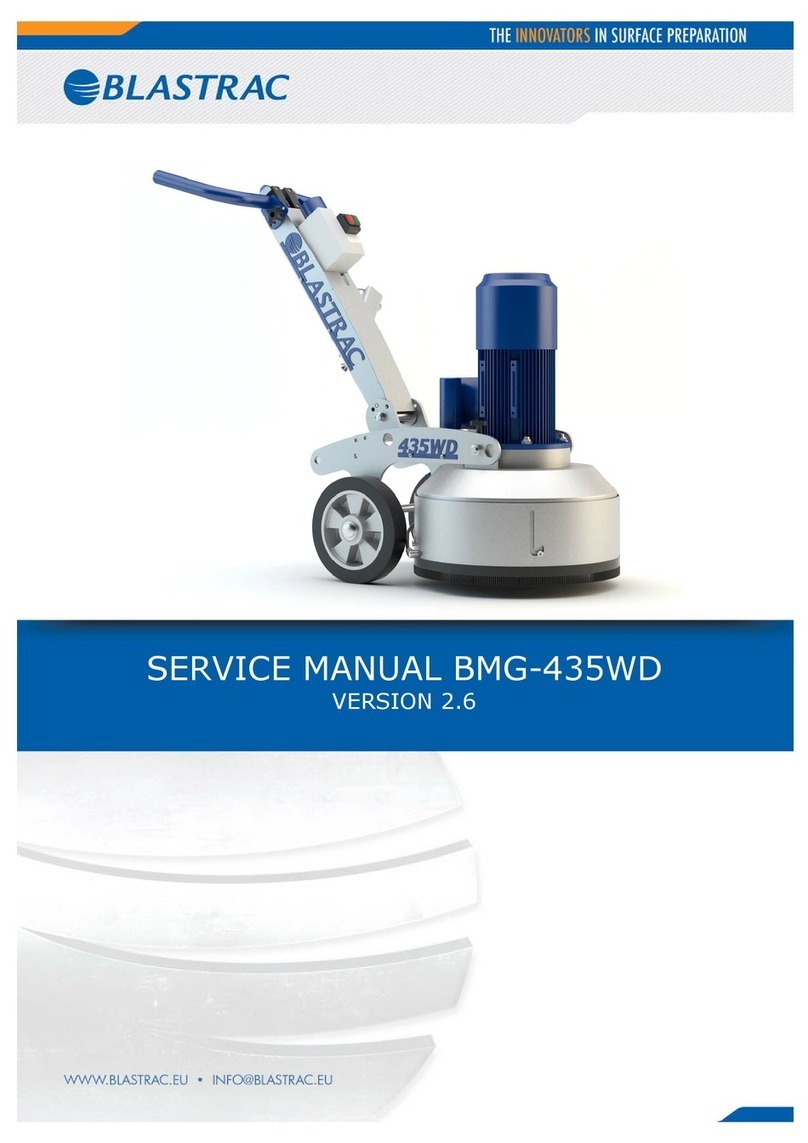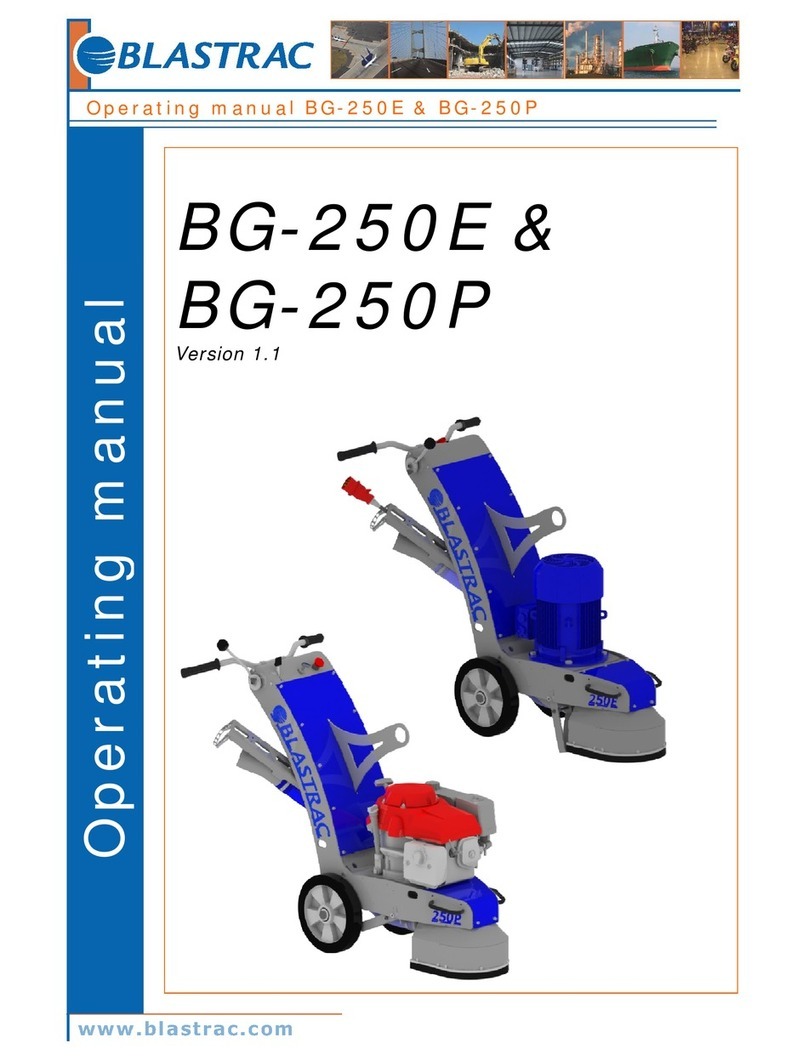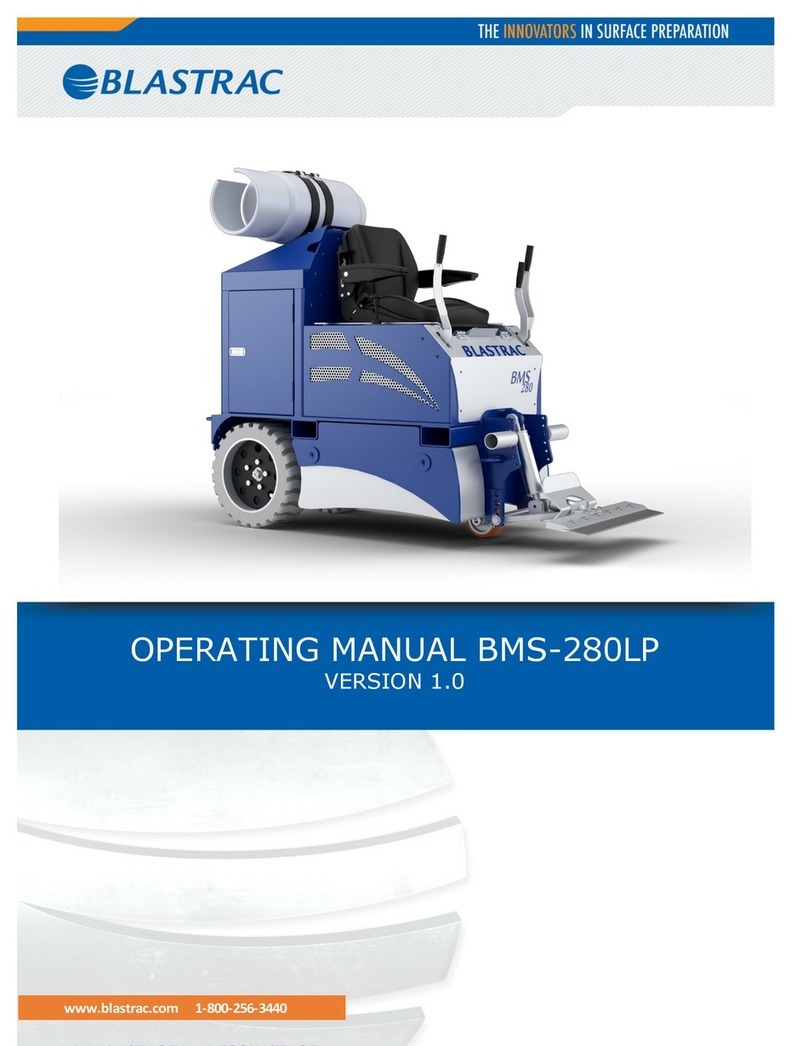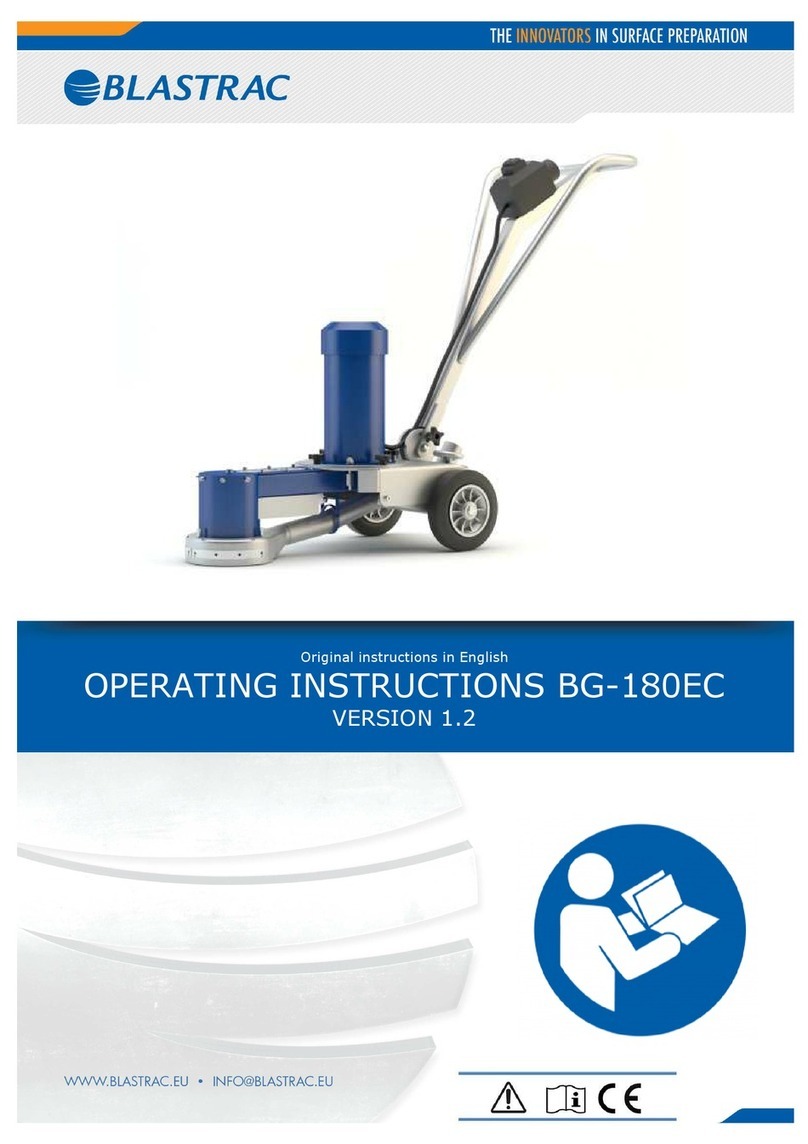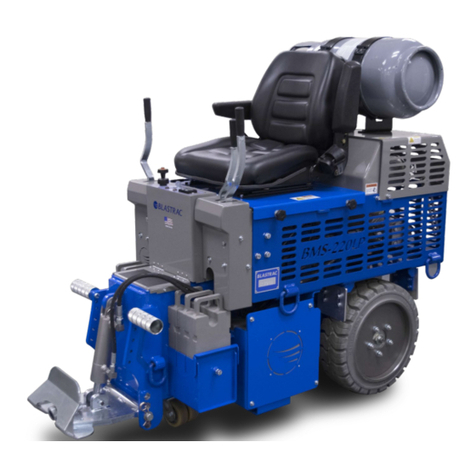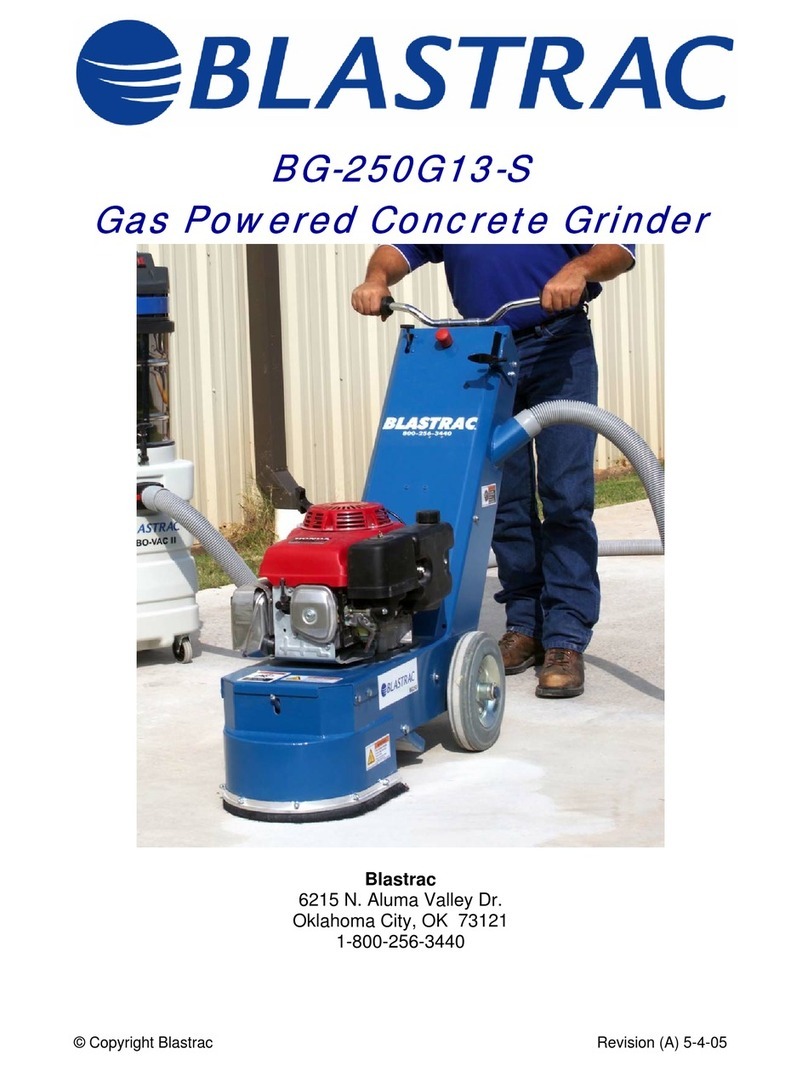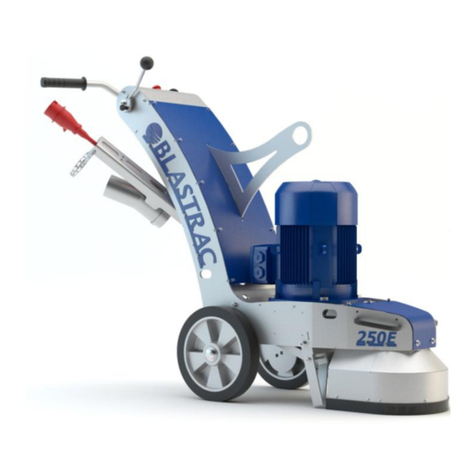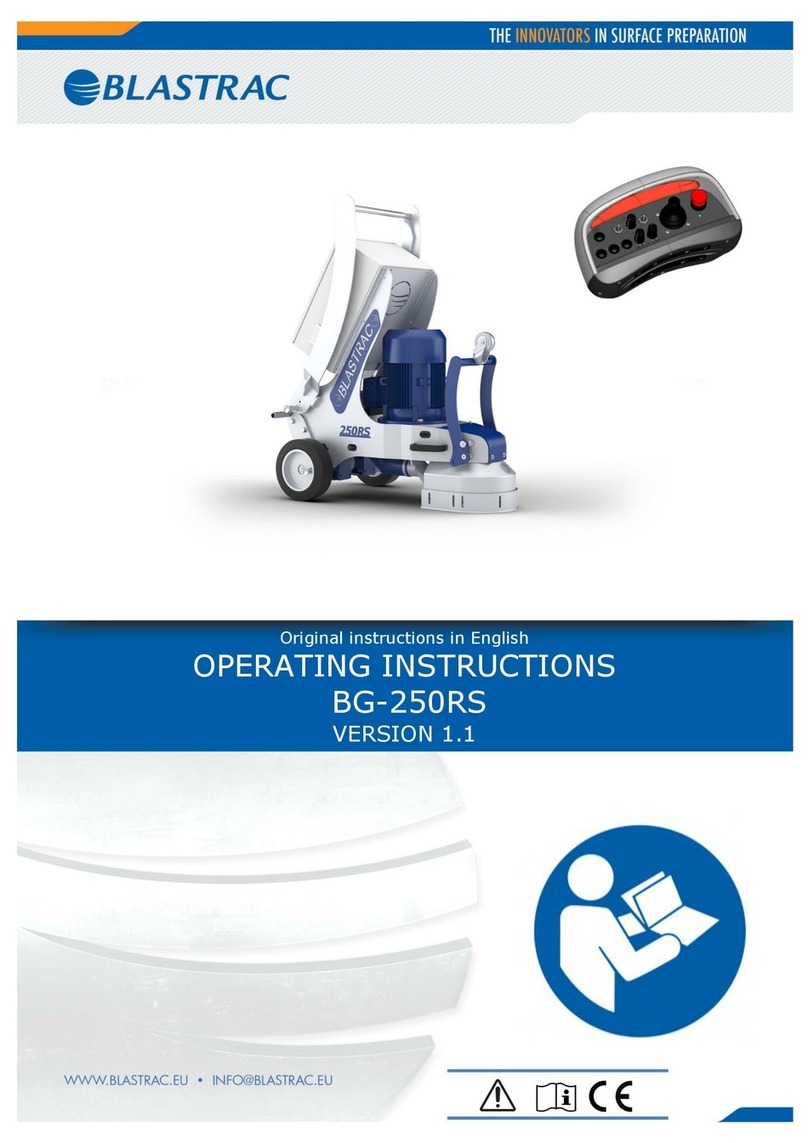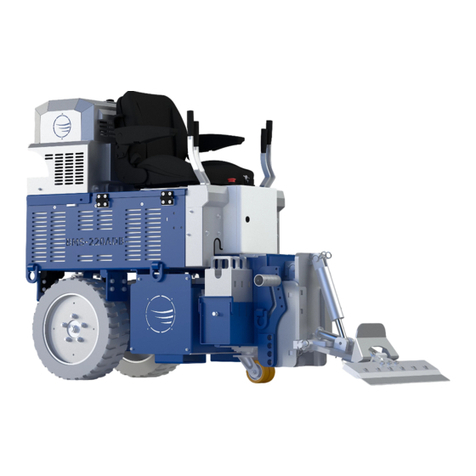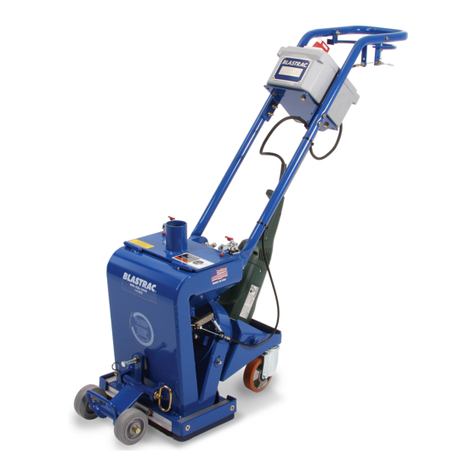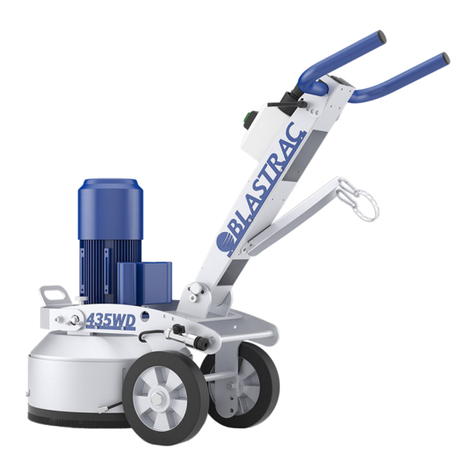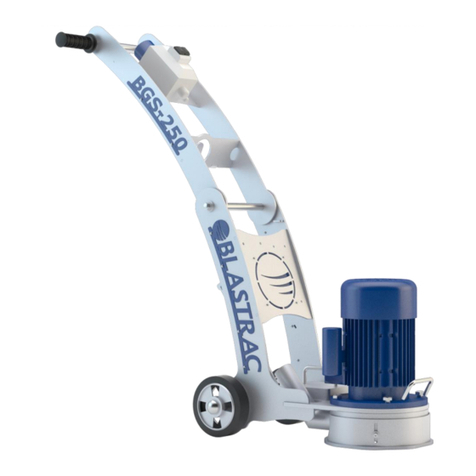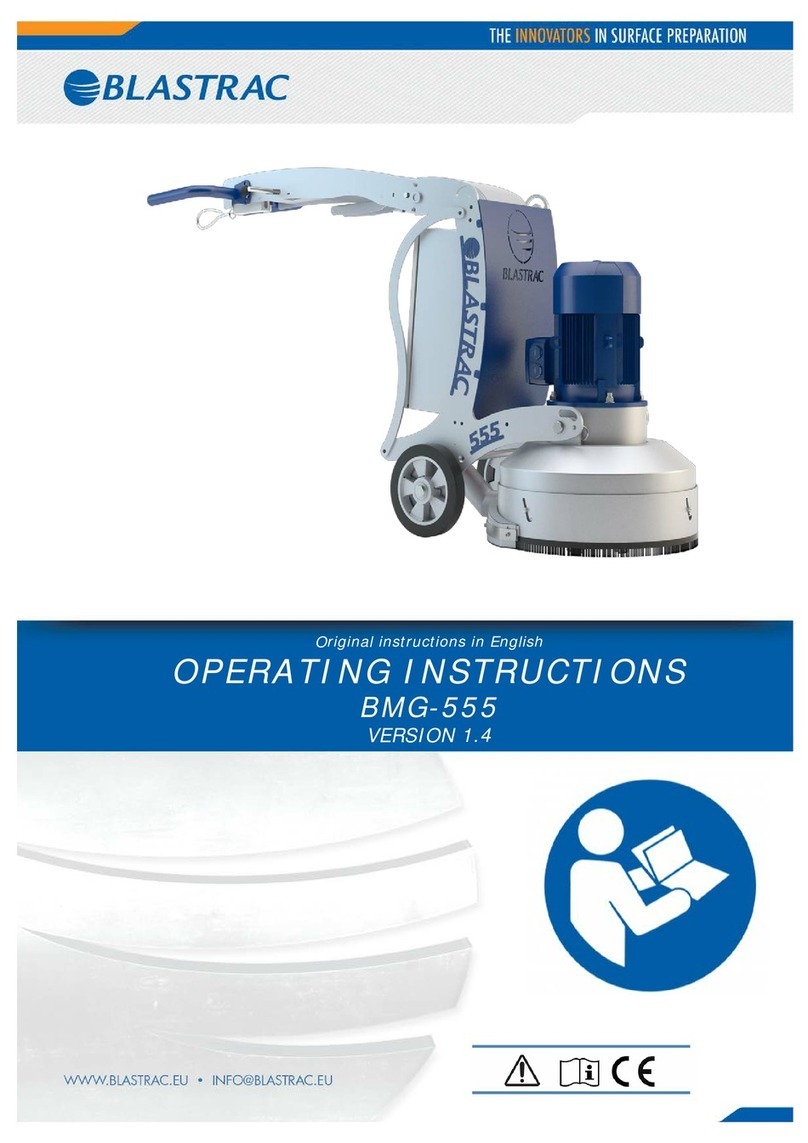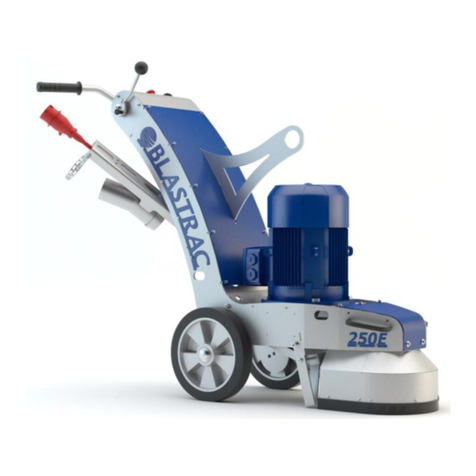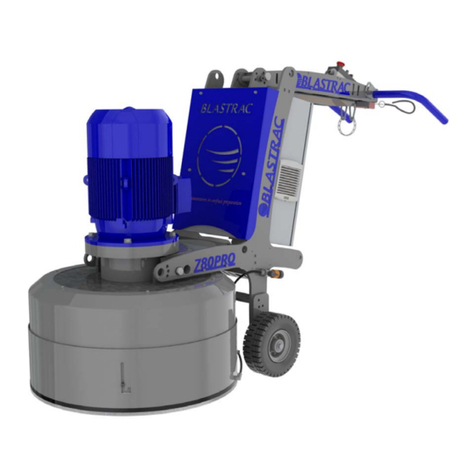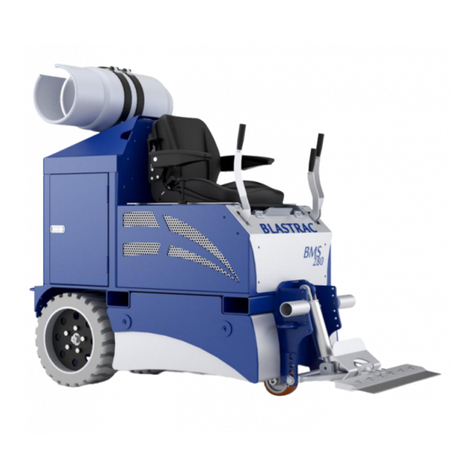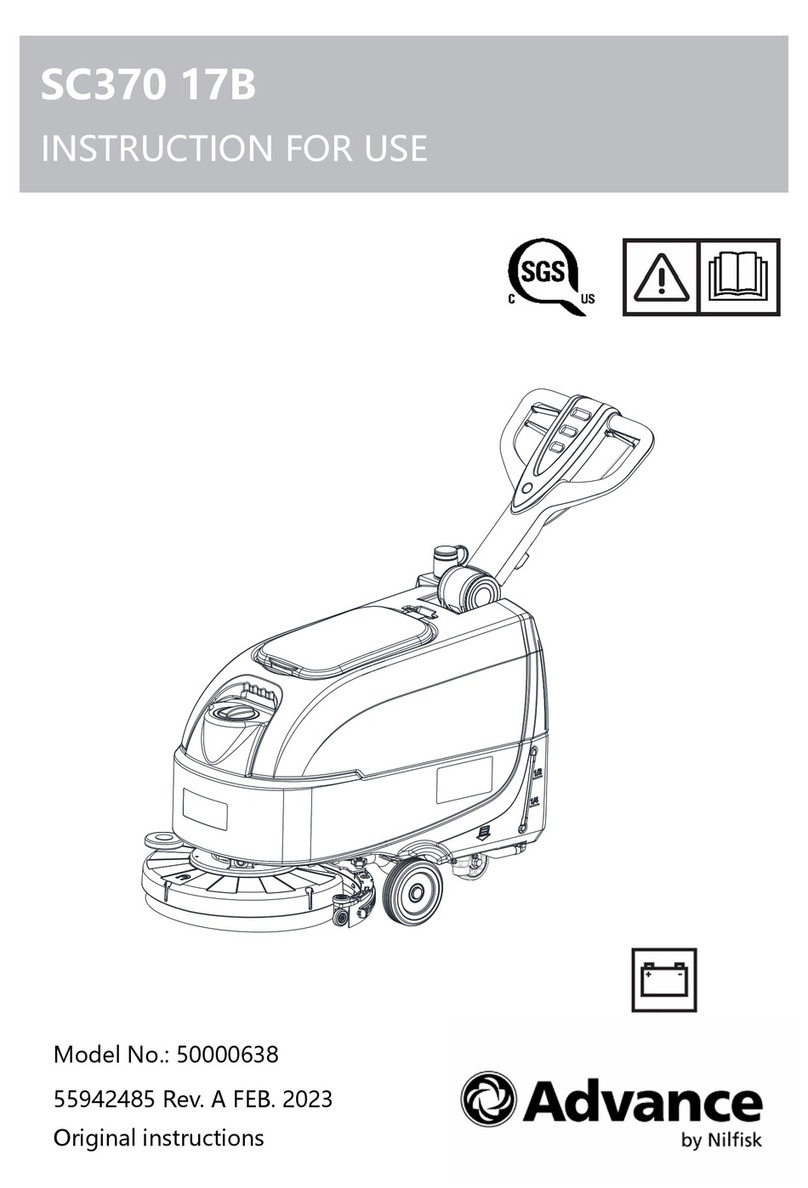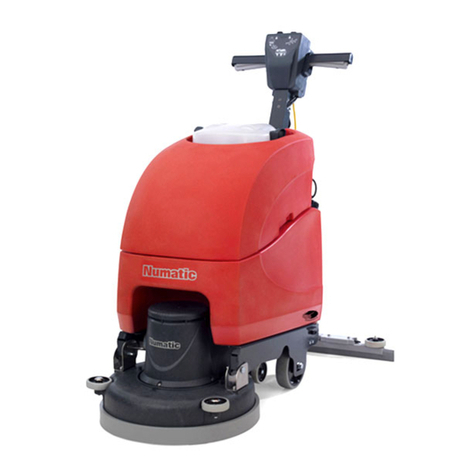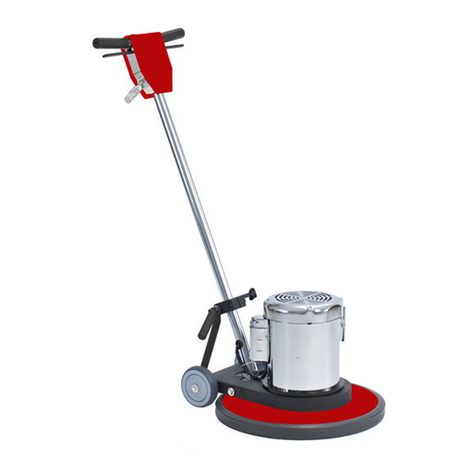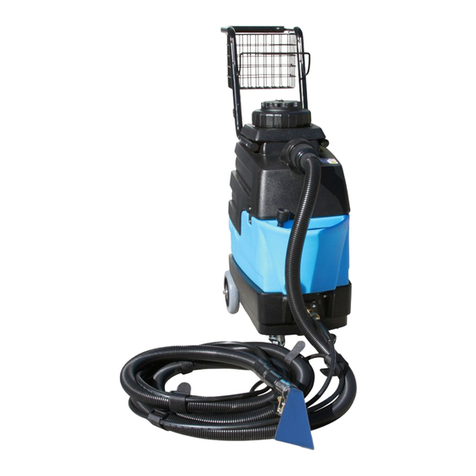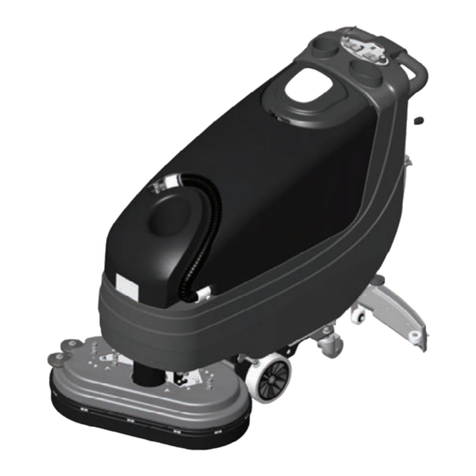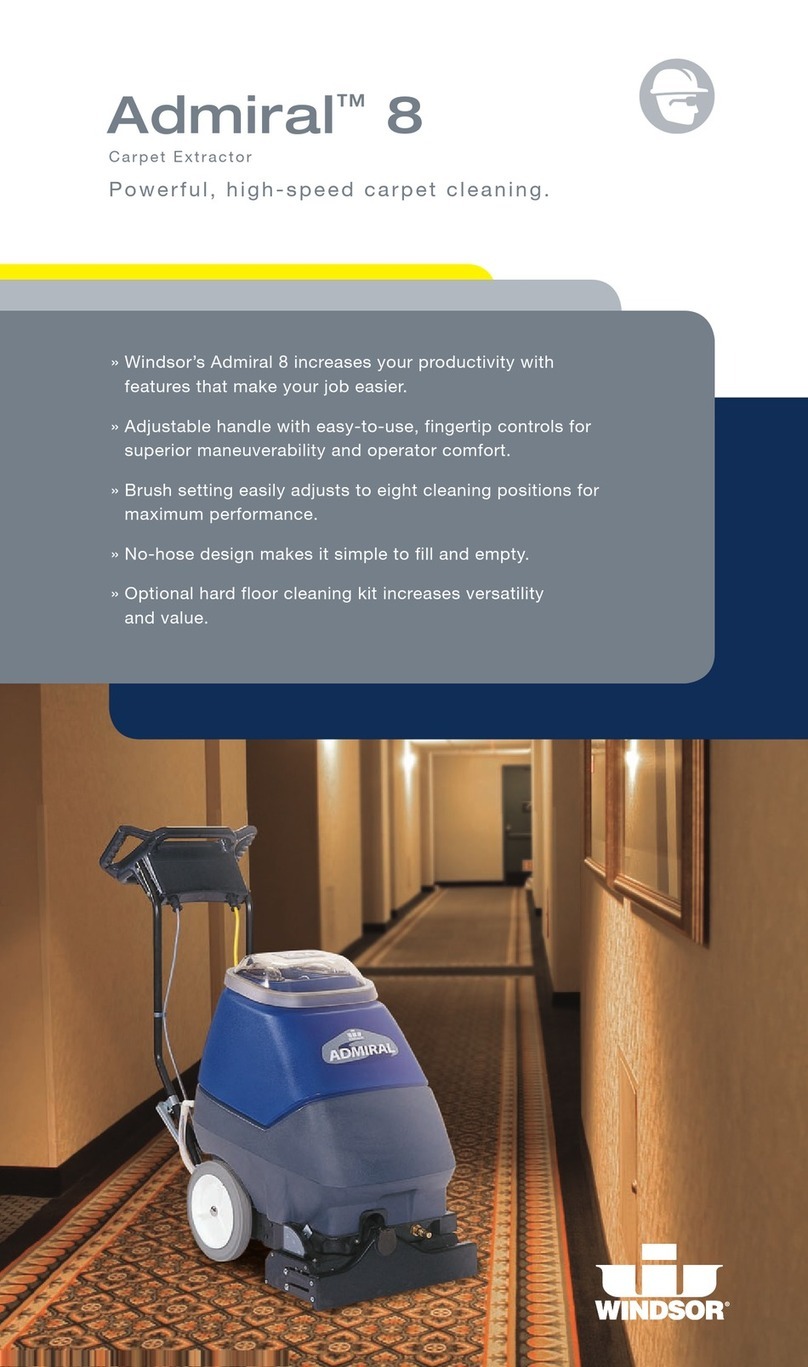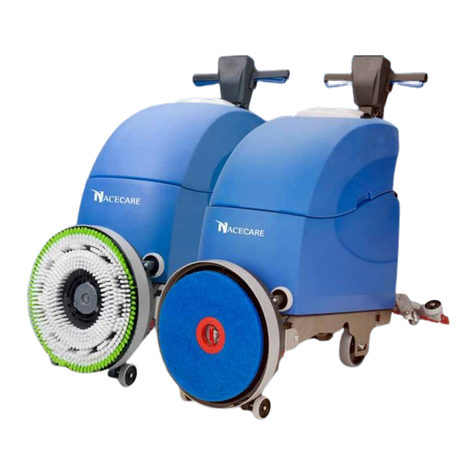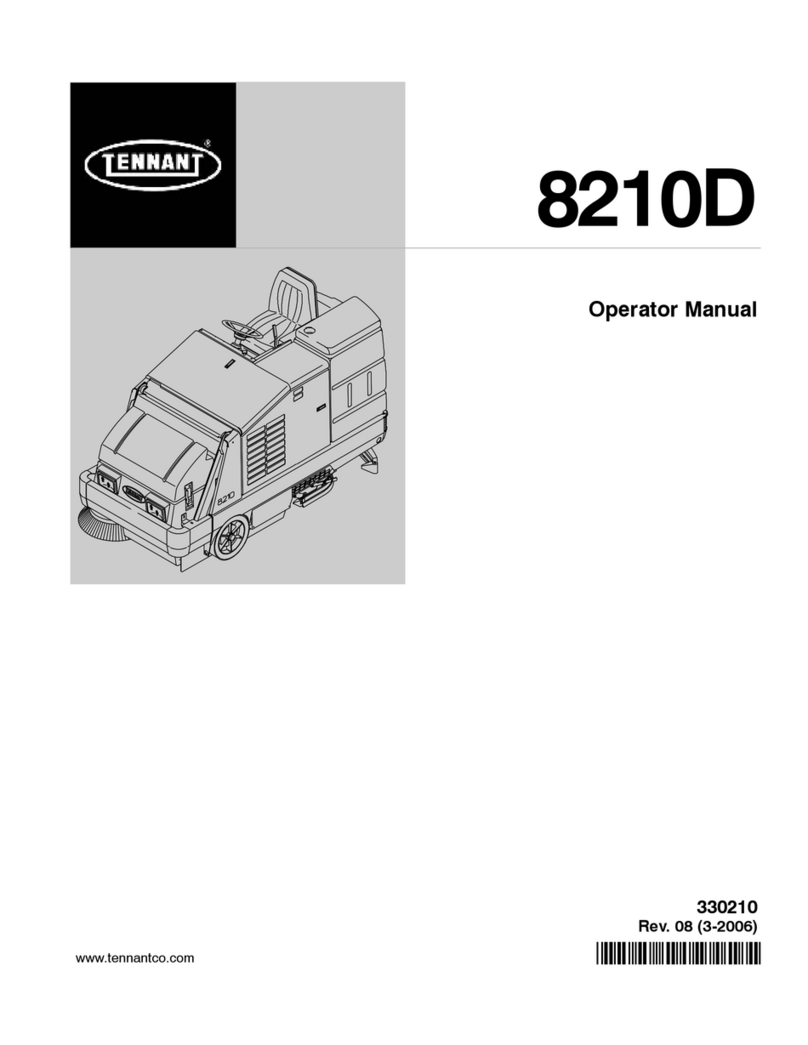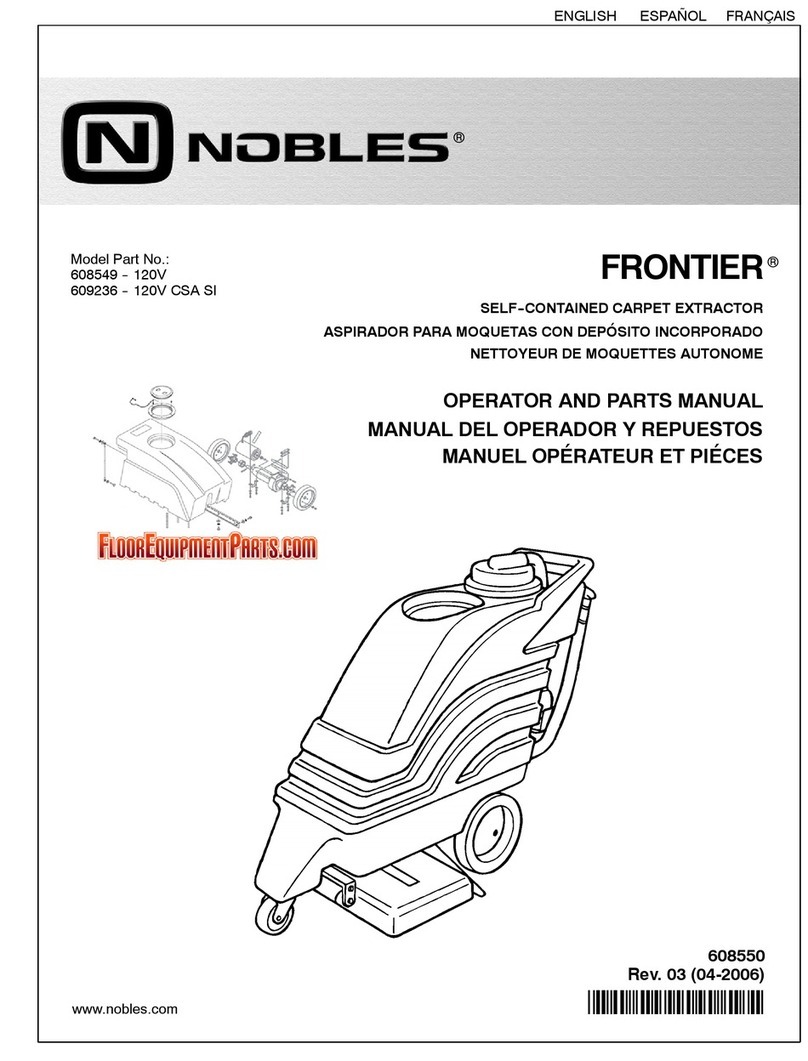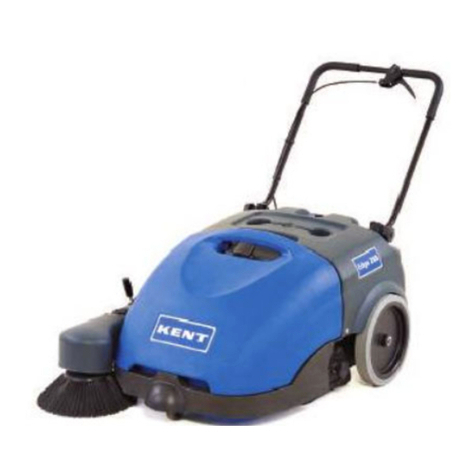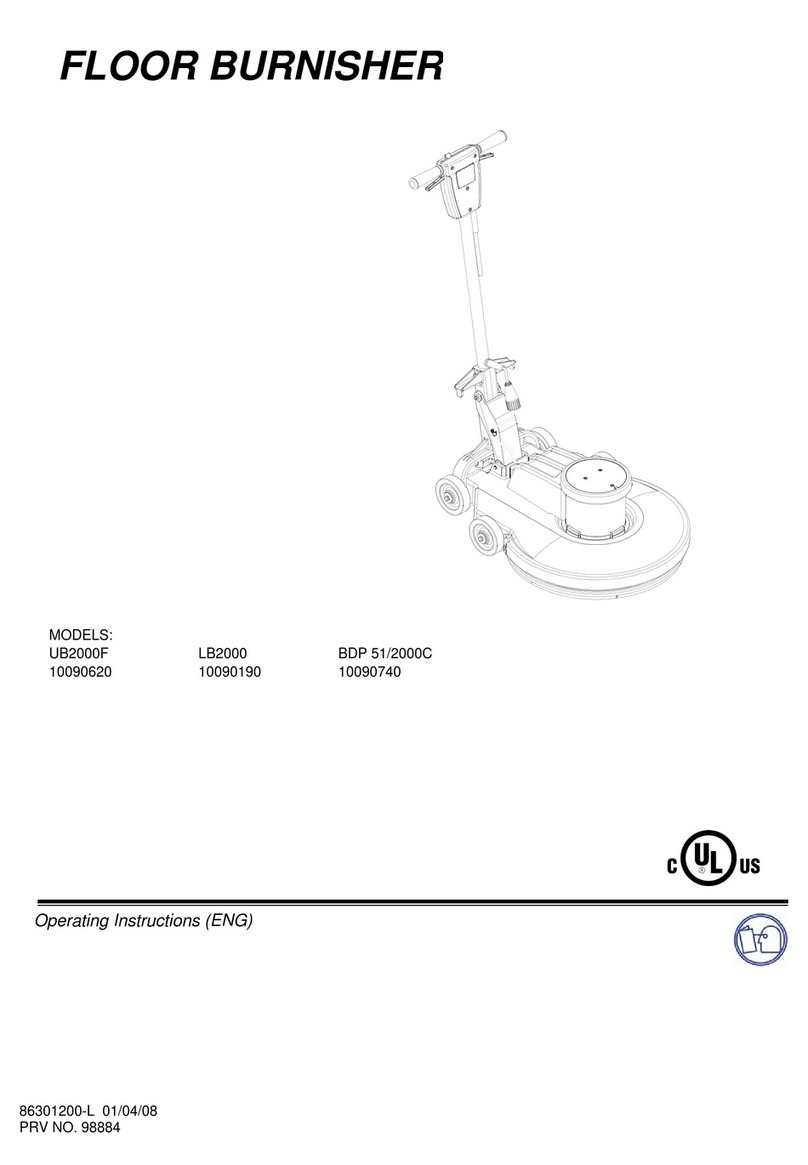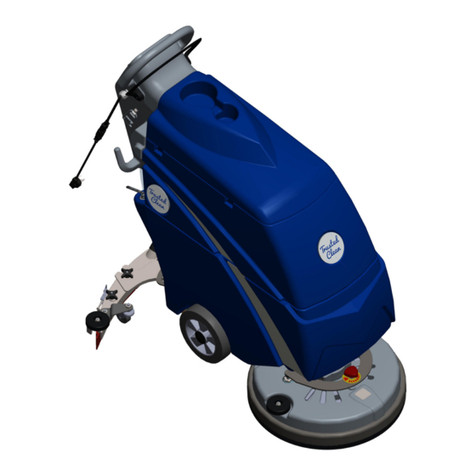
7
l) Do not abuse the cord. Never use the cord for carrying, pulling or unplugging the machine. Keep cord
a ay from heat, oil, sharp edges or moving parts. Damaged or entangled cords increase the risk of
electric shock.
m) The main po er s itch on the machine must be in the “Off” position before connecting to the po er
supply. (Only if there is a main s itch present on the electrobox.)
n) Be careful ith ater on the treated surface. Electrical cables must not come into contact ith ater.
o) During a long standstill of the machine, pull out the main plug.
p) If the machine is to be operated using po er from a generator, the generator must be operated in
accordance ith the current legal regulations and directives in force. (this applies to the protective earth
conductor in particular) in order to ensure that all safety devices are functioning and to eliminate possible
damage to electrical components.
3.3 Personal safety
a) Always wear Personal Protect ve Equ pment wh le work ng w th the mach ne.
-Dust mask class FFP2 or higher
-Ear protection
-Safety glasses ith lateral protection
-Protecting gloves
-Safety shoes
b) Dress properly. Do not ear loose clothing or je ellery. Keep your hair, clothing and gloves a ay from
moving parts.
c) Stay alert, atch hat you are doing and use common sense hen operating the machine.
d) The cord of the deadman s itch key should al ays be fastened on your arm or on to your clothing.
e) Pull out the key of the deadman s itch before any inspections, adjustments and/or maintenance ork is
started.
f) Al ays seek professional medical attention immediately in case of injury.
g) All persons surrounding the machine should ear Personal Protective Equipment.
3.4 Mach ne safety general
a) Safety functions and operating functions must ork correct.
b) No loose bolts and nuts permitted.
c) Never operate machine ithout the guards and/or safety devices in place.
d) Never change anything on the safety devices on the machine!
e) The machine, specially the handle grips must be free of fats/oils and has to be dry.
f) If the length of the brushes is, due to ear, less than 5mm or they are extremely deformed, the brushes
have to be replaced. Check the Service Manual for the order numbers.
g) All repair ork has to be done by qualified Blastrac personnel, this guarantees a safe and reliable
machine.
h) Always use or g nal Blastrac spare parts, gr nd ng d scs, gr nd ng w ngs and pol sh ng pads. This
ill ensure the best performance. Only original parts meet the factory specifications and quality.
Other ise Blastrac BV cannot guarantee the safety of the machine.
The part numbers can be found in the Service Manual.
i) If safety-cr t cal changes occur to the machine or its orking method, the machine must be shut down
mmed ately! The cause of the fault must be established, and rectified.
j) In the event of operat onal malfunct ons the machine must be shut down mmed ately and secured!
k) Do not use the unit hen it is damaged.
l) Do not open or remove protect ve guards hile driving gears are running.
3.5 Ma ntenance safety
a) Pull out the main plug before starting inspections and repairing on the machine.
b) Wait for standstill of all drives before any inspections, adjustments and/or maintenance ork is started.
c) Block the machine in stable position before doing any maintenance ork.
d) Failures due to inadequate or incorrect maintenance may generate very h gh repa r costs and long
standstill periods of the machine. Regular maintenance therefore is imperative.
e) Operational safety and service life of the machine depends, among other things, on proper maintenance.
f) Prevent premature ear by keeping the machine as dust free as possible. Clean the machine for this
reason regularly ith a dust collector and non-aggressive materials, especially the upper drive. Never use
a high pressure ater cleaner to clean the machine.
g) It is advisable to stock all spare parts or ear parts that cannot be supplied quickly. As a rule, production
standstill periods are more expensive than the cost for the corresponding spare part.
